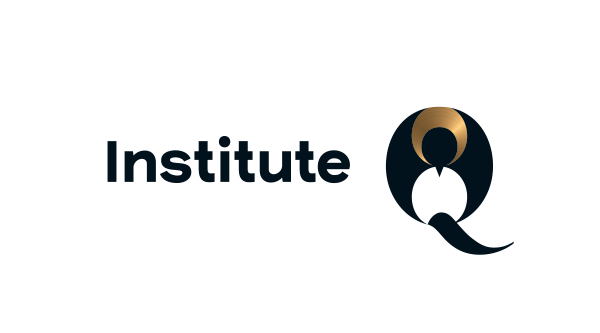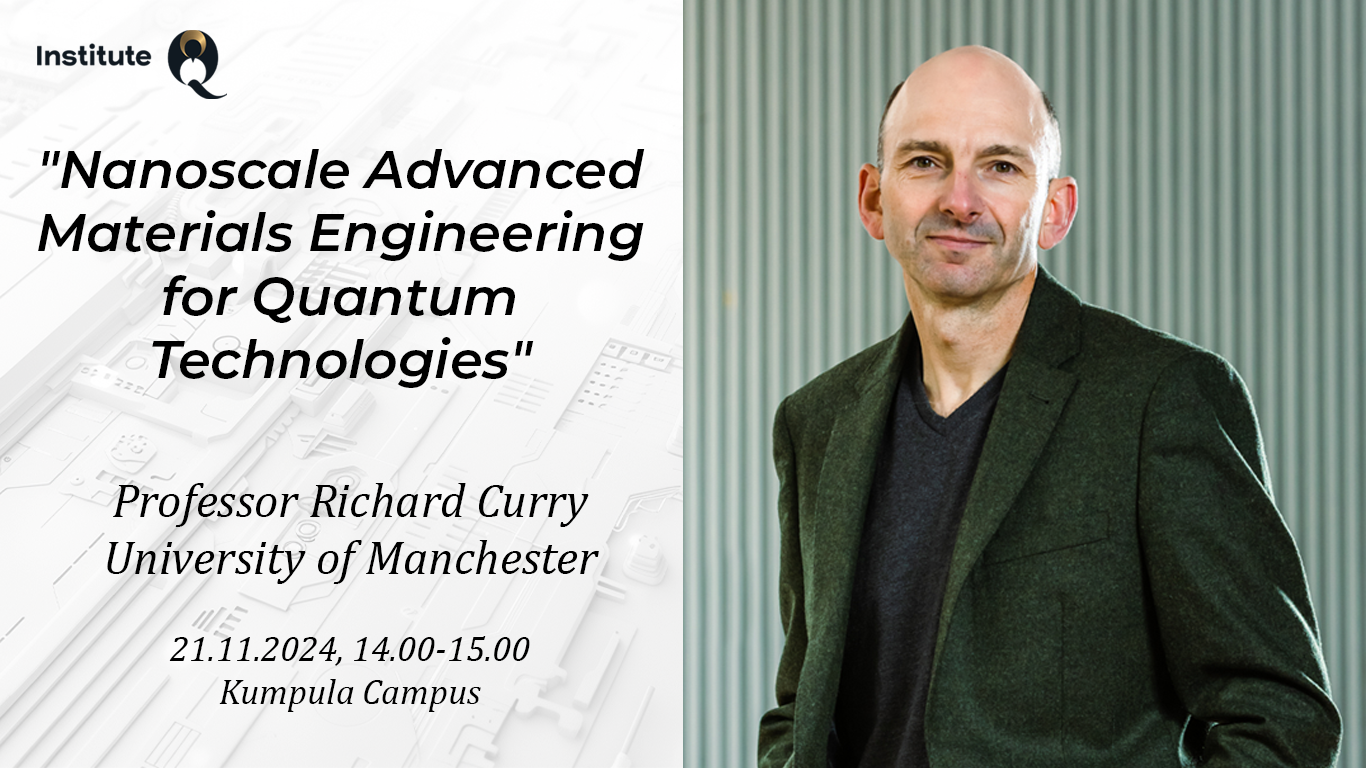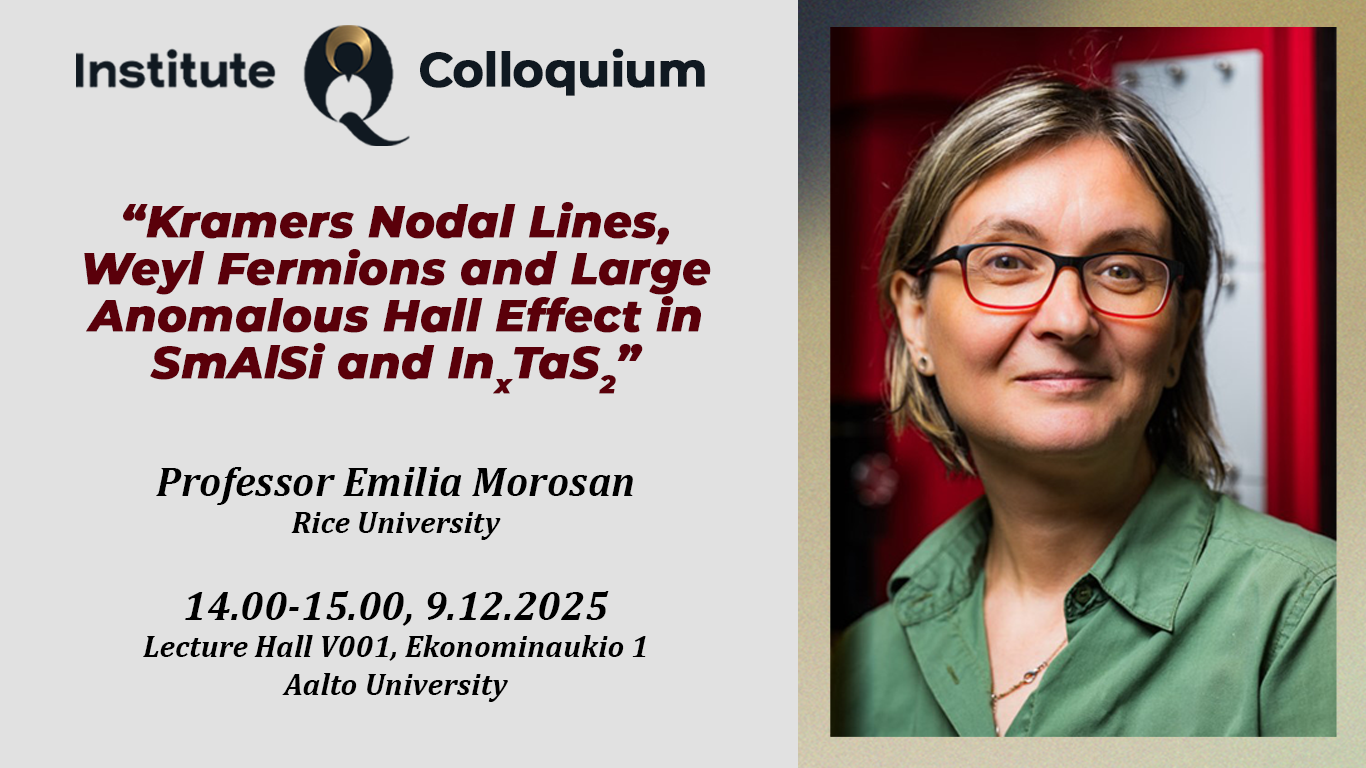This InstituteQ Colloquium features Professor Richard Curry of the University of Manchester. The title of his talk is “Nanoscale Advanced Materials Engineering for Quantum Technologies.”
Prof Richard Curry is the Faculty of Science and Engineering Vice-Dean (Research & Innovation) at the University of Manchester and co-leader of the UK EPSRC Materials for Quantum Network (M4QN). His research interests are based around the study and development of new photonic materials and devices and doped solid-state materials for quantum technologies. He is the principal investigator of a portfolio of several research grants including the EPSRC Programme Grant ‘Nanoscale Advanced Materials Engineering’, and maintains a strong set of national and international collaborations and contributes to policy discussion around the areas of advanced materials, semiconductors and quantum technologies.
Event details
When: 14.00-15.00, 21.11.2024
Where: Exactum B123, Kumpula Campus of the University of Helsinki, Pietari Kalmin katu 5, Helsinki
Register:Webropol link to register
Host: Professor Flyura Djurabekova
Refreshments will be served.
From Richard Curry: What will your talk discuss?
Quantum Technologies (QTs) from new sensing capability through to computation are seen as one of the next scientific revolutions that will impact society. Over the last decade substantial international research programmes have focused in earnest on advancing QTs, with the critical role of underpinning materials becoming apparent and the need for their properties to be designed and engineered specifically for these applications. The development of Nanoscale Advanced Materials Engineering (NAME) through the use of focused ion beams for QTs has therefore accelerated significantly in recent years. This has driven the development of new tools for this purpose and the ability to engineer material functionality on nanometre length scales. This talk will review such state-of-the-art of the work delivered by the NAME Programme Grant within the UK, benchmarked against international roadmaps (https://doi.org/10.1002/adem.202300889). Specific examples of novel research on nanoscale materials, and materials for quantum technologies, will be provided. These include the ability to dope photonic structures and materials (e.g. lithium niobate), create colour centres in diamond (https://doi.org/10.48550/arXiv.2409.07421), and to perform isotopic enrichment of silicon (https://doi.org/10.1038/s43246-024-00498-0). Prospects for future research directions will be discussed alongside the major challenges that these present.




